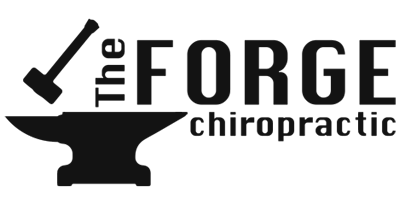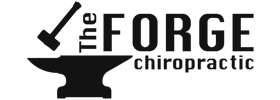Understanding Spinal Disc Lesions: Insights into Neck, Mid-Back, and Low Back Disc Issues in Hudson WI

Spinal disc problems are a common source of pain, aecting your neck (cervical spine), mid-back (thoracic spine), or low back (lumbar spine). At our chiropractic clinic in Hudson WI, we understand that a disc lesion can be a signicant concern. This page offers straightforward information on what disc lesions are, how they aect dierent spinal regions, and our approach to helping you nd relief and improve your function.
What is a Spinal Disc Lesion? A Quick Overview in Hudson WI
A "disc lesion" means there's damage to one of the cushion-like discs between your spinal bones (vertebrae). This usually involves a tear in the disc's tough outer layer (annulus fibrosus), allowing the spongy, gel-like center (nucleus pulposus) to bulge or shift.
This can cause symptoms like pain, tingling, numbness, or weakness if the damaged disc irritates nearby nerves – either through inammation (chemical irritation) or direct pressure (mechanical compression). Disc issues oen develop over time from repetitive stress or aging, rather than a single injury.
Your Spinal Discs: Brief Anatomy and How Damage Occurs
Your intervertebral discs act as shock absorbers and allow spinal movement. They have a tough outer ring and a gel-like center. Repetitive stress, aging, or awkward movements can weaken the outer bers, leading to tears. Early on, you might not feel this, as only the disc's outermost layers have nerves. Many adults have disc bulges or protrusions without any symptoms.
Common Terms for Disc Lesions
You might hear terms like:
- Protrusion: The disc bulges, but the outer layer is mostly intact.
- Extrusion: The inner gel has pushed through the outer layer but is still connected.
- Sequestration: A piece of the inner gel has broken off. Disc involvement can also be described as focal (small area), broad-based (wider area), or circumferential (around most of the disc).
Cervical Disc Lesions (Neck)
Your neck discs are naturally a bit thinner at the back.
- Common Issues: Most cervical disc lesions occur here, often at C5-C6 or C6-C7. These can cause nerve symptoms because the nerve pathways in the lower neck are relatively narrow.
- Who's Affected: Cervical disc problems are a frequent cause of neck-related nerve pain, peaking in the fourth decade, and are slightly more common in males.
- Contributing Factors: Repetitive, stressful postures (like forward head position), heavy lifting, trauma (e.g., whiplash), smoking, and prolonged vibration (like driving) can contribute.
Thoracic Disc Lesions (Mid-Back)
Disc issues in your mid-back are less common but can occur.
- Nature & Causes: These arise from similar factors: repetitive stress, degeneration, or trauma.
- Who's Aected: While many people might have asymptomatic thoracic disc\ issues, those causing symptoms are rare (less than 1% of all symptomatic disc problems). When they do occur, it's often in the fourth or fifth decade, affecting females slightly more. The T11-T12 area is most commonly involved.
- Contributing Factors: Trauma, repetitive twisting, awkward postures, and physically demanding activities are risk factors.
Lumbar Disc Lesions (Low Back)
Your lower back bears significant weight and is a very common site for disc lesions.
- Nature & Causes: Lumbar disc problems often result from cumulative stress. Most occur at L4-L5 or L5-S1.
- Who's Aected: These are very common, aecting many adults, and are more prevalent in men. Symptomatic issues peak in the fourth or h decades. Interestingly, many lumbar disc herniations can shrink or resorb over time with conservative care.
- Contributing Factors: Sedentary lifestyles, prolonged driving, smoking, increased BMI, previous pregnancy, tall stature, aging, and genetic predisposition all play a role.
The Forge Chiropractic Approach to Spinal Disc Lesions
If you're experiencing symptoms that suggest a spinal disc lesion, a thorough evaluation is essential to pinpoint the source of your problem. At The Forge Chiropractic, we take a comprehensive and personalized approach:
- Detailed History: We'll start by listening carefully to your story – how and when your symptoms began, the nature of your pain or other sensations, what makes it better or worse, any previous injuries, your daily activities, and your overall health.
- Comprehensive Physical Examination: This will involve:
- Neurological Testing: Assessing your reflexes, muscle strength, and sensation to identify any signs of nerve compression.
- Orthopedic Tests: Performing specific movements and tests designed to provoke or relieve your symptoms, helping us to identify the affected nerve root(s) and disc level(s).
- Assessment of Spinal Mechanics: Evaluating how your spine moves, identifying areas of restriction, and assessing overall joint function.
- We may utilize Jtech functional assessment tools if appropriate for your case, to gather objective data on your spinal movement, strength, or function, which can help guide your treatment and track progress.
- Whole-Person Healthcare Approach: We look beyond just the site of pain. We consider your ergonomics (how you use your body in daily tasks and at work), lifestyle habits, and other contributing factors that might be influencing your disc health and overall well-being.
- Personalized Treatment Goals & Strategies: Our primary goals are to reduce your pain and inflammation, improve your spinal function, and help you return to your normal activities. Your personalized treatment plan may include:
- Gentle Chiropractic Adjustments or Mobilizations: To restore proper movement to affected spinal segments and reduce pressure on discs and nerves.
- Soft Tissue Therapies: To address associated muscle spasms and tension.
- Specific Rehabilitative Exercises: To improve stability, and flexibility, and promote disc health.
- Education: Advice on body mechanics for daily activities, ergonomic modifications, and strategies to prevent recurrence.
- Co-management or Referral: If your condition requires it, we will work with other healthcare professionals or refer you for further imaging, pain management consultations, or surgical opinions if conservative care is not sufficient or appropriate for your specific situation.
At The Forge Chiropractic, we are dedicated to providing expert clinical care to our Hudson, Wisconsin, community. We'll work with you to manage your disc-related pain, improve your spinal health, and enhance your overall quality of life.
OFFICE HOURS
Monday
12:00pm - 6:00pm
Tuesday
Closed
Wednesday
9:00am - 9:00pm
Thursday
Closed
Friday
8:00am - 2:00pm
1st and 3rd
Saturday (of the month)
9:00am - 6:00pm
Sunday
Closed
The Forge Chiropractic
2320 Jack Breault Dr
Hudson, WI 54016



